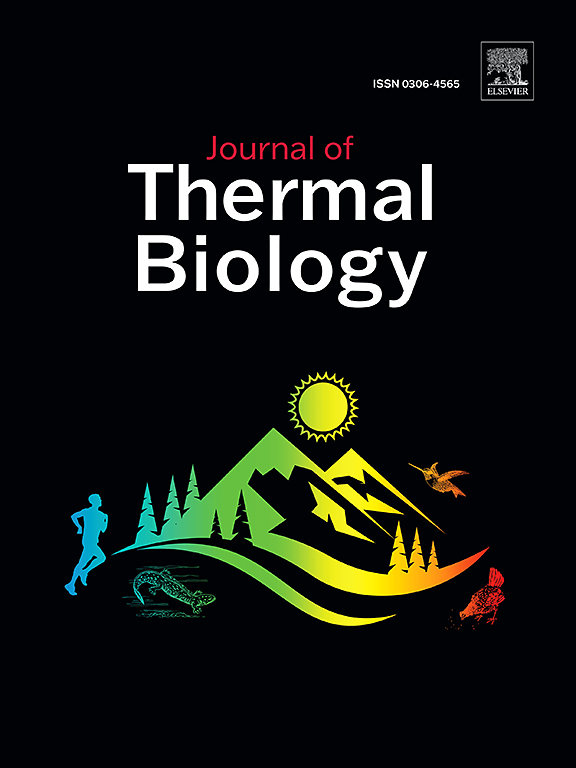Qingshu Yiqi tea prescription attenuates heat-stressed injury: network pharmacology and experimental validation
IF 2.9
2区 生物学
Q2 BIOLOGY
引用次数: 0
Abstract
Heat stress (HS) poses a significant threat to health, necessitating effective interventions. This study investigated the therapeutic mechanisms of Qingshu Yiqi Tea Prescription (QSYQTP) against HS-induced organ damage in mice. Utilizing an integrated pharmacology approach combining histopathology, network pharmacology, biochemical assays, and qRT-PCR, we assessed QSYQTP's effects in a heat-stressed murine model. QSYQTP supplementation suppressed serum aminotransferase activities (ALT, AST), reduced MDA concentrations, and enhanced antioxidant enzymes (T-SOD, GSH). It also downregulated heat shock genes (HSP27/60/70/90) by inhibiting HSF1 expression, suggesting MAPK involvement, MAPK signaling pathway inhibition (P-JNK, P-P38). These results suggest that QSYQTP may increase the antioxidant capacity in vivo, reduce oxidative stress, and inhibit the heat shock response, all of which can help ameliorate HS-induced liver and small intestine damage.
青舒益气茶方减轻热应激损伤:网络药理学及实验验证
热应激对健康构成重大威胁,需要有效的干预措施。本研究探讨清舒益气茶方对hs致小鼠脏器损伤的作用机制。利用综合药理学方法,结合组织病理学、网络药理学、生化分析和qRT-PCR,我们评估了QSYQTP在热应激小鼠模型中的作用。补充QSYQTP可抑制血清转氨酶活性(ALT、AST),降低丙二醛(MDA)浓度,增强抗氧化酶(T-SOD、GSH)。通过抑制HSF1表达下调热休克基因(HSP27/60/70/90),提示参与MAPK,抑制MAPK信号通路(P-JNK, P-P38)。综上所述,QSYQTP可能提高体内抗氧化能力,降低氧化应激,抑制热休克反应,从而改善hs诱导的肝脏和小肠损伤。
本文章由计算机程序翻译,如有差异,请以英文原文为准。
求助全文
约1分钟内获得全文
求助全文
来源期刊

Journal of thermal biology
生物-动物学
CiteScore
5.30
自引率
7.40%
发文量
196
审稿时长
14.5 weeks
期刊介绍:
The Journal of Thermal Biology publishes articles that advance our knowledge on the ways and mechanisms through which temperature affects man and animals. This includes studies of their responses to these effects and on the ecological consequences. Directly relevant to this theme are:
• The mechanisms of thermal limitation, heat and cold injury, and the resistance of organisms to extremes of temperature
• The mechanisms involved in acclimation, acclimatization and evolutionary adaptation to temperature
• Mechanisms underlying the patterns of hibernation, torpor, dormancy, aestivation and diapause
• Effects of temperature on reproduction and development, growth, ageing and life-span
• Studies on modelling heat transfer between organisms and their environment
• The contributions of temperature to effects of climate change on animal species and man
• Studies of conservation biology and physiology related to temperature
• Behavioural and physiological regulation of body temperature including its pathophysiology and fever
• Medical applications of hypo- and hyperthermia
Article types:
• Original articles
• Review articles
 求助内容:
求助内容: 应助结果提醒方式:
应助结果提醒方式:


